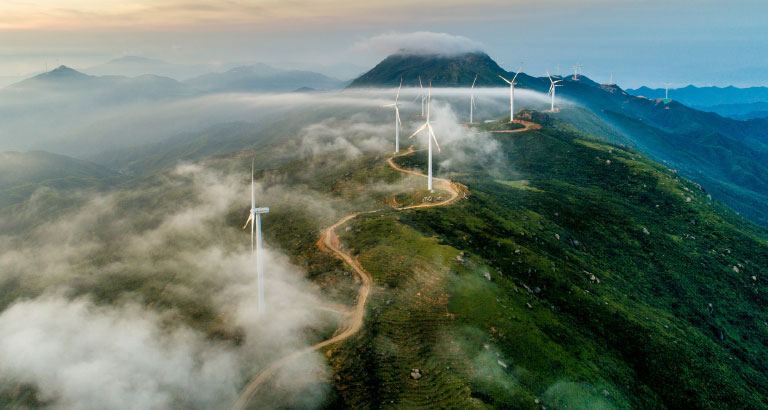
Germany has long been known for its visionary developments in the fields of technology and automation. However, the nation is a leader in other fields that have grown to be crucial for the whole world - sustainable technology and renewable energy.
Germany is home to one of the most advanced environmental technology markets worldwide, with new legislation creating new opportunities for investment. With a global trade share of 14 percent in 2020, German GreenTech products are especially sought after.
In 2016, the markets for environmentally-friendly energy generation, energy efficiency, resource efficiency, sustainable mobility, sustainable water management, waste management and recycling accounted for 15 percent of German GDP. This is expected to increase to 19 percent by 2025.
Growing Markets: Water and Recycling
The circular economy and the sustainable water industry are expected to experience annual growth of more than five percent and six percent respectively – reaching a joint market volume of EUR110 billion by 2030. Within the sustainable water industry, water efficiency – with expected annual growth rates of almost 40 percent until 2030 – represents the segment with the highest growth. With an estimated annual increase of almost 15 percent for the period 2016 to 2025, the market for recycling technologies offers the fastest-growing opportunities in the circular economy and waste management markets.
Germany has been promoting renewable energies since the 1990s. The Energy Transition is leading to electricity predominantly coming from regenerative sources as Climate Protection is a top priority for Germany.
A future in which nature and the climate are protected, fewer people suffer from hardship and social cohesion is maintained – these and others are the objectives being pursued by German Government through its Sustainable Development Strategy, whereby the focus transcends national borders.
Rapid action is required, as the international community has set itself a deadline. In fact, the Federal Government passed a Climate Protection Act to this end in 2019, which was amended in 2021; according to this: “Germany is to achieve greenhouse gas neutrality by 2045.”
In electricity production, Germany aims to raise the share of renewables to more than 80 percent in 2050, while completely phasing out electricity production from nuclear power plants and charcoal plants. Greenhouse gas (GHG) emissions would be cut by at least 80 percent by 2050.
The level of ambition of the Federal government for the ‘Energiewende’ (Energy Transition) has dramatically increased with the new coalition elected in 2021, the share of renewables to be reached in the power mix by 2030 being set at 80 percent (against 47 percent in 2022). Germany has set an economy-wide emissions reduction target of at least 65 percent by 2030 and at least 88 percent by 2040, compared to 1990 levels. The country aims to reach climate neutrality by 2045 (five years earlier than the EU target) and achieve negative greenhouse gas emissions after 2050.
As a sample what all is possible is the Volkswagen city of Wolfsburg which has again topped the rankings in a recent survey of Germany’s most sustainable cities, based on a mixture of ecological, social and economic criteria.
Important challenges remain, however: waste disposal, pollution from the agriculture and transport sectors, to cite a few priorities at national level; and regional pollution and climate change at international level.
Another great sample supporting Zero Emission by 2045 is the DGNB (Deutsche Gesellschaft fuer Nachhaltiges Bauen = German Sustainable Building Council) which is a non-profit participatory association and Europe’s largest network for sustainable building: Founded in 2007 and is now the number two worldwide, with more than 2,000 member organisations.
Initiatives in all sectors and level are striving together to achieve the ambitious goal of the German Government to reach Net Zero by 2045.



